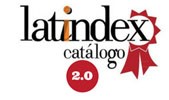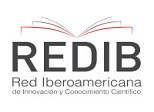Educating Leukemia Patients
DOI:
https://doi.org/10.69890/hallazgos21.v6i3.537Keywords:
leukemia;, Cancer;, patient education.Abstract
With the aim of training medical students who do a rotating internship at the Solca Hospital in Guayaquil for the treatment of patients with leukemia, a qualitative study was carried out using the Participatory Action Research methodology. Leukemia patients and medical students were defined as units of analysis. The research was developed in four phases: detection and diagnosis of the practice of medical students who carry out the rotating internship and their way of communicating with patients diagnosed with leukemia, the communicational aspects, the elaboration of a plan to introduce the change, the implementation of such a plan and evaluation of results. Three instruments were designed and validated to be used in this stage in two phases, a pre-test and a post-test; and feedback, through plenary sessions. The results showed that the students had to delve into the content on the type of leukemia, symptoms, causes, diagnosis and treatment of each type. In addition, it was necessary at this stage to teach soft, social and sociological skills, especially to deal with patients with this type of pathology. It is concluded that patients are willing to improve or change their life routine if the diagnosis related to leukemia is communicated to them assertively.
References
Baxter, L., Hughes, C., Tight, M. (2000). Cómo se hace una investigación. Barcelona:Gedisa Editorial.
Creswell, J. W. (2014). Research Design: Qualitative, Quantitative and Mixed Methods Approaches (4th ed.). Thousand Oaks, CA: Sage.
Diccionario etimológico español en línea. (15 de Junio de 2019). Diccionario etimológico español en línea. Obtenido de Etimología de Leucemia : http://etimologias.dechile.net/
Emadi, A., & Law, J. Y. (2019). Leucemia mieloide crónica (LMC). Manual MSD: Versión para profesionales. https://www.msdmanuals.com/es/professional/hematolog%C3%ADa-y-oncolog%C3%ADa/leucemias/leucemia-mieloide-cr%C3%B3nica-lmc
Instituto Nacional del Cáncer. (2017). Tratamiento de la leucemia linfocítica crónica (PDQ®)–Versión para pacientes. https://www.cancer.gov/espanol/tipos/leucemia/paciente/tratamiento-llc-pdq
Manascero Gómez, A.R. (2003). Atlas de morfología celular, alteraciones y enfermedades relacionadas. (1ra ed.). Bogotá: Centro editorial Javeriano: Pontificia Universidad Javeriana. http://noeqbcursodehema.blogspot.com/2015/11/leucemia-de-celulas-pilosas.html
Martin, E. (2017). Leucemia: Webconsultas Healthcare.Revista de Salud y Bienestar (Internet). www.webconsultas.com/leucemia/causas-de-la-leucemia-2594
Mayo Clinic. (2018). Leucemia.Mayo Foundation for Medical Education and Research (MFMER). www.mayoclinic.org/es-es/diseases-conditions/leukemia/symptoms-causes/syc-20374373
Pérez, G. (s.f.). Síntomas de leucemia. https://cancersintomas.com/leucemia-cancer-en-la-sangre.
Rodak, B. (2005). Hematología: Fundamentos y Aplicaciones clínicas. Buenos Aires: Médica Panamericana, S.A.
Sallman, D. (2018). Primer paciente con leucemia mieloide aguda curado gracias a la inmunoterapia T CAR. ABC Enfermedades. https://www.abc.es/salud/enfermedades/abci-primer-paciente-leucemia-mieloide-aguda-curado-gracias-inmunoterapia-201805091602_noticia.html
Sánchez-Monge, M. (2019). Leucemia: tratamiento, síntomas e información. https://cuidateplus.marca.com/enfermedades/cancer/leucemia.html
Published
How to Cite
Issue
Section
License
Los artículos enviados a la Revista Científica Hallazgos21 deberán ser totalmente originales e inéditos.
Los autores son los responsables de los textos y las imágenes incluidas en los artículos y no necesariamente reflejan el pensamiento de la editorial o de la Pontificia Universidad Católica del Ecuador, Sede Esmeraldas (PUCESE).
Los autores disponen cederle a la Revista Científica Hallazgos21 todos los derechos inherentes para la edición, publicación y distribución o divulgación del mismo.
Se autoriza a las revistas firmantes de los acuerdos de Encuentros de Revistas Latinoamericanas para reproducir en parte o totalmente los artículos con la sola mención de la fuente claramente señalada.







